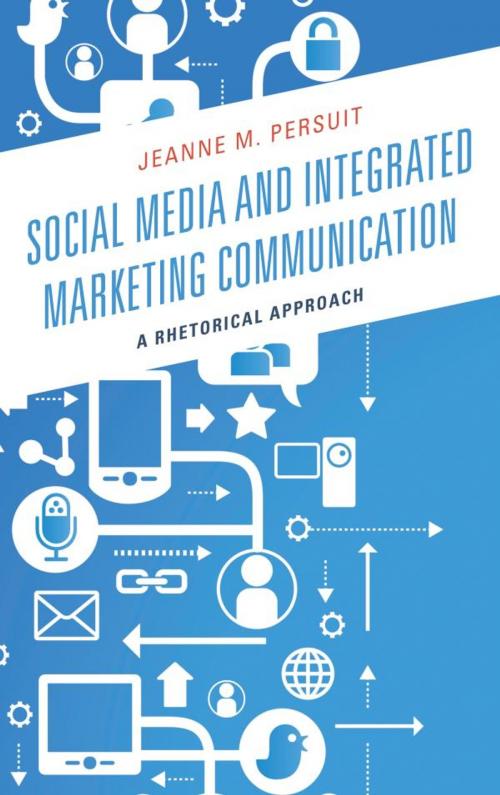Social Media and Integrated Marketing Communication
A Rhetorical Approach
Business & Finance, Entrepreneurship & Small Business, New Business Enterprises, Nonfiction, Computers, Internet, Electronic Commerce, Marketing & Sales| Author: | Jeanne M. Persuit | ISBN: | 9780739171141 |
| Publisher: | Lexington Books | Publication: | July 18, 2013 |
| Imprint: | Lexington Books | Language: | English |
| Author: | Jeanne M. Persuit |
| ISBN: | 9780739171141 |
| Publisher: | Lexington Books |
| Publication: | July 18, 2013 |
| Imprint: | Lexington Books |
| Language: | English |
Social Media and Integrated Marketing Communication: A Rhetorical Approach explores social media in the areas of corporate identity, brand narratives, and crisis response from a rhetorical perspective. Key ideas in this text are social media as epideictic rhetoric—the rhetorical setting that deals with the present and matters of virtue and education—and how rhetorical decorum, a component of Cicero’s third Canon of Style, can guide organizations and their audiences toward more ethical and effective integrated marketing communication (IMC). This strategy emphasizes changing behavior, not just attitudes. Because social media leaves traces of communication that may be with us for the foreseeable future, Social Media and Integrated Marketing Communication frames the conversation about social media and IMC to move away from a risk/reward or a return on investment orientation and toward a focus on social media as communicative action that is attentive to this historical moment, to organizations and their audiences, and to communication ethics. Through this, Persuit asks how organizations can engage in decorum in their online IMC efforts while at the same time considering how their audiences can engage in decorum as well. Neither romanticizing nor demonizing the areas of social media and IMC, instead, this text offers a pragmatic understanding of these areas that finds a place in the theory of the communication discipline.
Social Media and Integrated Marketing Communication: A Rhetorical Approach explores social media in the areas of corporate identity, brand narratives, and crisis response from a rhetorical perspective. Key ideas in this text are social media as epideictic rhetoric—the rhetorical setting that deals with the present and matters of virtue and education—and how rhetorical decorum, a component of Cicero’s third Canon of Style, can guide organizations and their audiences toward more ethical and effective integrated marketing communication (IMC). This strategy emphasizes changing behavior, not just attitudes. Because social media leaves traces of communication that may be with us for the foreseeable future, Social Media and Integrated Marketing Communication frames the conversation about social media and IMC to move away from a risk/reward or a return on investment orientation and toward a focus on social media as communicative action that is attentive to this historical moment, to organizations and their audiences, and to communication ethics. Through this, Persuit asks how organizations can engage in decorum in their online IMC efforts while at the same time considering how their audiences can engage in decorum as well. Neither romanticizing nor demonizing the areas of social media and IMC, instead, this text offers a pragmatic understanding of these areas that finds a place in the theory of the communication discipline.















